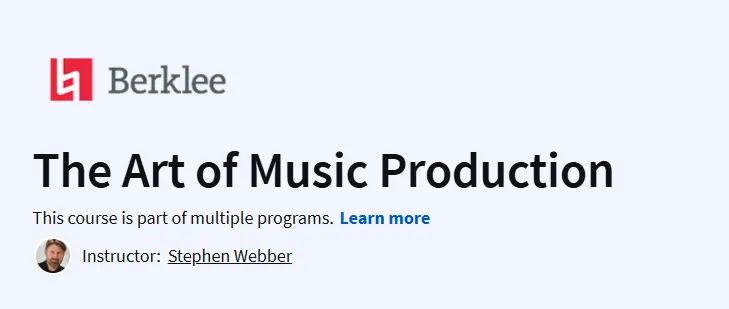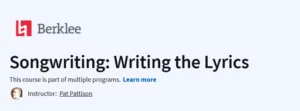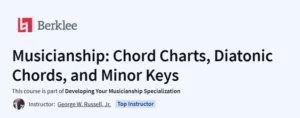What you will learn in The Art of Music Production Course
- Digital Audio Workstation (DAW) fundamentals
- MIDI programming and audio recording
- Beat making and arrangement techniques
- Basic mixing and signal processing
- Sound design principles
- Music production workflows
- Genre-specific production approaches
Program Overview
DAW Foundations
⏱️ 2 weeks
- Covers session setup, basic editing, and navigation in major DAWs (Logic, Ableton, FL Studio).
- Includes tempo mapping and session organization.
Beat Production
⏱️ 2 weeks
- Focuses on drum programming, groove creation, and rhythmic elements.
- Features sampling techniques and drum machine emulation.
Harmonic Elements
⏱️ 2 weeks
- Teaches chord progressions, bassline creation, and melodic development.
- Includes virtual instrument programming.
Mix Fundamentals
⏱️ 2 weeks
- Examines EQ, compression, reverb, and basic mastering.
- Features mix comparison exercises.
Get certificate
Job Outlook
- Professional value: Essential for jazz musicians
- Salary potential: 100500 per gig for skilled improvisers
- Industry demand: Core skill for session work
- Certification benefit: Berklee alumni network access
Specification: The Art of Music Production Course
|
FAQs
- Classified as intermediate level—best suited for learners with some experience or familiarity with music production basics.
- Structured across five modules, each designed to be tackled in approximately 1 week at 10 hours per week, totaling around 5 weeks.
- Covers essentials like DAW fundamentals, beat creation, harmony, mixing, and sound design—ideal for building a strong foundation quickly.
- Offers a flexible schedule, allowing you to complete modules at your own pace.
- Teaches DAW fundamentals including session setup, editing, navigation, and tempo mapping across major platforms like Logic Pro, Ableton Live, and FL Studio.
- Covers beat production, drum programming, sampling, and rhythm creation techniques, with a focus on groove and machine emulation.
- Delves into harmonic elements—chord progression construction, bassline pairing, and virtual instrument utilization.
- Offers mixing fundamentals such as EQ, compression, reverb, and mastering techniques including mix comparison exercises.
- Provides downloadable project files for hands-on practice, supporting genre versatility and your own creative experiments.
- Ideal for beginners—but you’ll need at least a working DAW software, such as Ableton, Logic, or FL Studio.
- Quality headphones are highly recommended for critical listening and mixing—even if you don’t have studio monitors.
- While basic participation could be done with a laptop, investing in at least a simple audio interface and mic will elevate your experience.
- The course doesn’t require expensive gear, but better tools help you hear and apply concepts more clearly.
- Mixing practice is included, but real-world feedback improves with better listening equipment.
Pros:
- Taught by Berklee College of Music instructors, recognized for credibility and industry expertise.
- Uses a multi-DAW approach, making it adaptable across software platforms.
- Comes with downloadable project files, enabling you to practice techniques directly.
- Suitable across all genres—useful whether you’re into pop, rock, hip-hop, or electronic production.
Cons:
- Requires access to DAW software, which may involve cost if you don’t already have it.
- Advanced mixing, mastering, and sound design techniques are not deeply explored—best viewed as a foundation.
- While self-guided, the absence of real-time feedback means consistent practice is essential to progress.
- Serves as the foundational first module of the Music Production Specialization, which then expands into technology, Pro Tools skills, and a Capstone project.
- You’ll earn a shareable certificate—perfect for showcasing your music production knowledge on LinkedIn or portfolios.
- It lays groundwork for exploring more advanced areas like DSP, synthesis, and live production techniques taught in university settings and programs.
- Combining this with strategic networking and real-world project collaboration can accelerate your development as a producer.
- A forum member’s advice: the real level-up comes through dedicated practice and “making stuff”, beyond passive learning.





